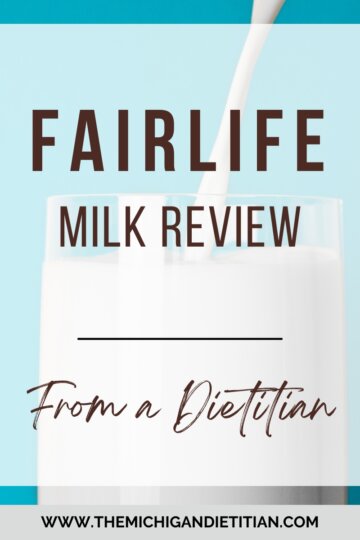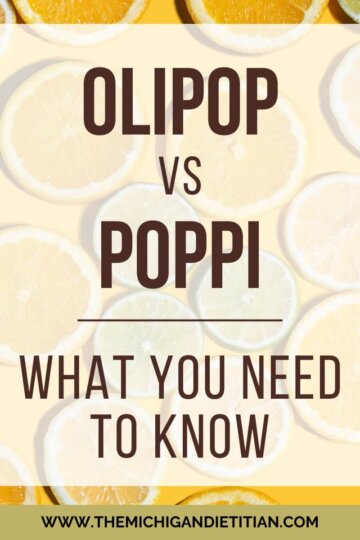This post may contain affiliate links. That means if you click and buy, I may make a commission at no cost to you. Please see my full disclosure policy for more details.
You’ve heard about prebiotics and probiotics but now the new biotic are postbiotics. These aren’t as popular yet, but they may be just the thing you’re looking for.
What Are Postbiotics?
Before learning what postbiotics are it’s easier if you also know about prebiotics and probiotics. Think of prebiotics as the food that the beneficial bacteria, probiotics eat. Now, think of postbiotics as the output made by the probiotics. This can be in the form of inactivated cells or byproduct of probiotics.
Really, these are a newer finding. The definition of what a postbiotic consists of was only created in 2013. This means the research behind postbiotics will only continue to grow and find new uses.
Prebiotics=Food for Probiotics
Probiotics=Beneficial Bacteria
Postbiotics=Products of Probiotics
What Postbiotics Are Good For
Having to keep track of prebiotics, probiotics, and now postbiotics can seem overwhelming, but they have some benefits you may be interested in.
Postbiotics have, “immunomodulatory, anti-inflammatory, anti-oxidant, and anticancer effects”.1

Postbiotics and Irritable Bowel Syndrome
Nowadays, who doesn’t have or know someone with irritable bowel syndrome (IBS)? Basically, everyone is affected in someway!
There’s not too many ways to aid IBS, and it can be quite debilitating.
You may have been told to supplement prebiotics and probiotics, but now there’s postbiotics. A study done comparing them found that postbiotics were ‘superior’ to probiotics when fighting inflammation.2
This doesn’t mean postbiotics are the right choice for everyone. It depends on your specific issues and bacteria. Always talk to your doctor and registered dietitian before making any changes or starting a supplement.

Postbiotics Can Aid Allergies and Eczema
Because of the relatively low risk in use of postbiotics they may be seen as an option to aid in allergies.
There has been found data to support the use of postbiotics in preventing asthma and reducing wheezing exacerbations.1
Further, a study on 200 children found that if they had butyrate-producing bacteria in their microbiota led to a quicker resolution to a cow’s milk allergy.1
Cow’s milk tends to be in many things, even some products you wouldn’t expect. so, a child without this allergy would make life for both the caretaker and the child SO MUCH easier.
They have also been beneficial in reducing atopic dermatitis- think eczema. Eczema can be a tricking issue to deal with. Typically you just have to steal clear of any products that cause irritation or to find a special cream.

Supplementing Postbiotics
With postbiotics being newer, supplement options can be a bit sparse. If you are gung-ho on a supplement, you’ll have the best luck looking at a specialty health store.
Another way to increase your postbiotic numbers are by supplementing with prebiotics and probiotics. Basically, if you are adding in more of the bacteria and the food for the bacteria you’ll end up with more postbiotics.
Postbiotic Food Choices
Just because you are looking to increase your postbiotic count doesn’t mean you have to immediately reach for a supplement. It may be easy, but for best results first change-up your whole foods intake instead. Opt for foods high in pre- and probiotics. Prebiotic rich foods tend to be foods high in fiber while probiotic rich foods are often fermented. These can look like:
- Yogurt with live cultures (the probiotics)
- Sauerkraut
- Oats
- Tempeh
- Garlic
- Chicory Root
- Flaxseed
Check out my article on 4 Quick and Healthy Breakfast Ideas for some ideas. The Cinnamon Apple Parfait would be perfect!
Start adding some of these foods into your everyday diet and after about 6 months your microbiome should be altered!
The Future of Postbiotics
As of now postbiotics are as ‘normal’ as a prebiotic and probiotic. But, in the future it can be seen that they will too one day help the medical community take a step closer to understanding the microbiome and the gut-brain axis.

References:
- Zolkiewicz J, Marzec A, Ruszczynski M. Postbiotics—A Step Beyond Pre- and Probiotics. Pub Med Central. 2020. doi:10.3390/nu12082189
- Chong P, Chin V, Looi C, Wong W, Madhavan P, Yong V. The Microbiome and Irritable Bowel Syndrome – A Review on the Pathophysiology, Current Research and Future Therapy. Front Microbiol. 2019;10. doi:10.3389/fmicb.2019.01136





Leave a Reply